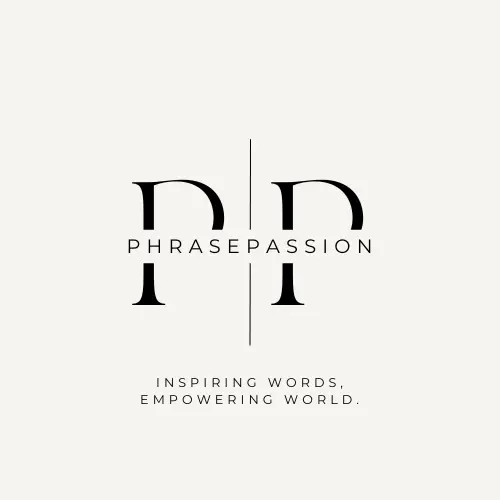Welcome to our curated collection of “Blaming Others Quotes,” where each phrase sheds light on the consequences of shifting blame and the wisdom of taking responsibility. Dive into the depths of personal accountability through the power of words, and let these quotes guide you towards a more self-aware and empowered life.
Understanding Blame and Responsibility

Empower yourself by grasping the dynamics between blame and responsibility—two forces that shape the very essence of your life experience.
Navigating these concepts can redefine your approach to challenges and triumphs alike!
Defining Blame and Its Impact on Life
Blame is pointing the finger at someone else for an outcome that didn’t meet your expectations. It can feel momentarily satisfying but often creates a barrier to personal growth and positive relationships.
Your life is the canvas upon which the consequences of blaming are painted; areas such as work, friendships, and inner peace may all show the tell-tale strokes of misplaced blame.
The Psychology of Blaming Others
Blaming others can spring from a need to protect your self-esteem or divert attention from your own shortcomings.
The complexity of human psychology means that when you blame, you might be actively choosing a simplistic solution over a more challenging path of self-reflection and change.
Taking Responsibility: Power to Change
Embracing responsibility is your power to change. It involves acknowledging your role in your life’s narrative and seizing the control that comes with making choices.
When you take charge of your responsibilities, you’re more likely to learn from your experiences, which can lead to profound personal growth and a renewed sense of accountability.
Quotes on Blaming Others and Personal Growth

Embracing accountability can be a thrilling journey toward self-improvement. Recognize the power you hold in moving beyond blame and cultivating growth.
Inspirational Quotes for Moving Beyond Blame
- Steve Maraboli once succinctly said, “The victim mindset will see you enslaved. The victor mindset will see you liberated.” This is a testament to the liberating power of taking responsibility for your actions.
- Leo Tolstoy shared invaluable wisdom with the world, reminding us that “Everyone thinks of changing the world, but no one thinks of changing himself.” True growth begins from within, and it’s a pivot from assigning blame to seeking change in oneself.
Shifting from Victimhood to Growth
- Leon Brown offers a perspective focused on growth, stating, “The more you take responsibility for your past and present, the more you are able to create the future you seek.” Embrace maturity and leave behind the role of the victim to take charge of your life.
- Let go of dysfunction and be responsible for your personal choices. Accepting the role you play in your life’s outcome is the bedrock of maturity and sets the stage for a truly productive and improving life.
Consequences and Alternatives to Blaming
This section explores the pitfalls of placing blame on others and the empowering effects of taking responsibility for your actions, leading to personal growth and effective problem-solving.
The Cost of Blaming Others for Our Problems
When you blame others, there’s a high price to pay. Your growth gets stunted as victimization takes the driver’s seat, steering you away from acknowledging your role in the issues at hand.
This habit not only affects your personal progress but also damages relationships since blaming is often seen as shirking responsibility.
It’s a cycle that feeds on itself; the more you blame, the less accountable you become, which, in turn, reinforces the negative behavior.
One way to visualize this is:
- Blaming others: Refusal to recognize personal faults → Relationship strain → Stagnation in personal development.
- Taking Responsibility: Understanding one’s own role → Strengthened relationships → Opportunities for growthand learning from mistakes.
Embracing Accountability and Seeking Solutions
On the flip side, embracing accountability means recognizing that hard work, education, and a commitment to self-improvement are vital components to finding solutions to your problems.
When you own up to your actions, it makes way for a productive shift in behavior. It’s about sharing the burden and also the success.
Accountability leads to a sense of empowerment, as you realize that your choices have a direct effect on the outcome of any situation.
Your actionable plan might look like this:
- Acknowledgment: I recognize my part in this problem.
- Education: What can I learn from this situation?
- Action: Here’s how I’ll address the issue.
Each step you take towards accountability is a step towards a more productive and positive effect on your life and the lives of those around you.
Keep sharing your journey and mistakes; it’s how you—and others—learn best!
Personal opinion on blaming others quotes
In the realm of “Blaming Others Quotes,” I find a mirror reflecting the often uncomfortable truth about human nature. We’re quick to point fingers, yet slow to face the music of our own missteps. These quotes are not just clever quips; they’re sharp reminders that in the blame game, the only winning move is not to play.
When we stop the blame cycle and look inward, we unlock growth and foster resilience. So, let’s take these witty nuggets of wisdom as personal prompts to stop outsourcing our faults and start owning our journeys.
FAQ
What is a famous quote about blame?
“All blame is a waste of time. No matter how much fault you find with another, it will not change you.” – Wayne Dyer
Why is blame toxic?
Blame is toxic because it fosters resentment, damages relationships, and impedes personal growth by shifting focus from self-improvement to criticizing others (Citron Hennessey Therapy).
What is blaming others called?
Blaming others is often referred to as scapegoating or finger-pointing.
If you liked this blog post about the topic: “blaming others quotes”, don’t forget to leave us a comment down below to tell us about your experience with it.
Before you go…
if “Blaming Others Quotes” resonated with you, you might find a kindred spirit in our post “Betrayed Family Quotes.” The biggest benefit of diving into this article is finding solace and empowerment after a family betrayal. It’s a companion piece that offers profound insights and the strength to move forward, much like understanding blame helps us grow. Continue reading to transform hurt into healing and reclaim your narrative.


